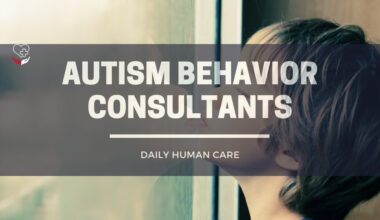This post by Daily Human Care is all about the ways to deal with dysfunctional family behaviors
Dysfunctional family behaviors can lead to various problems, including poor mental health among family members, physical abuse, and social consequences outside family life. Many options are available to help the family cope, including therapy, which will help members introspect and work toward creating a healthier environment inside the home. If you feel you’re in a similar situation, read on to learn how you can cope with toxic behaviors and build better relations with the family.
Table of Contents
What is a dysfunctional family?
Family dysfunction is any situation in which members within a group have a conflict that hinders the functioning of the group as a whole. Dysfunctional families are usually marked by a lack of inclusion. How do you know if you have an unhealthy relationship with your family? There are some tell-tale signs to look out for, including family rifts, lack of purpose, not getting along with siblings or parents, family members constantly feeling emotionally or mentally drained, lack of any sense of trust or harmony between family members, as well as a lot of fighting, aggression, and conflict.

What is the outcome?
Children growing up in dysfunctional households tend to engage in unhealthy behaviors. Many end up with unhealthy coping mechanisms, such as substance abuse. Domestic violence and crime are also common among people who grow up in a toxic and uncaring environment. These outcomes profoundly impact social development and can affect children and young adults as they grow older. Hence it is best to tackle family problems before they spiral out of control. Here’s what you can do to deal with dysfunctional family behaviors.
Seek professional interventions
Troubled family relations can lead to family members indulging in bad habits as a coping mechanism. They are more likely to consume harmful substances that impact their health and cause them to act irrationally and harm other family members. If such problems escalate, it is best to stage a professional intervention. Rehab facilities such as Serenity at Summit can assist with interventions such as drug detox, cognitive behavioral therapy, and mental health counseling.
Limit the information you share
Make a conscious effort to share as little about your personal life as possible. A dysfunctional family thrives on information and uses it against the other person. If you’re not willing to engage in a conversation about your personal life, the other person will be less likely to use it against you as blackmail.
Maintain a guarded attitude
Always act as if you are on guard when with your family members. Your best bet is to keep them at arm’s length. No matter how much they protest. Stay cool, collected, and firm. Always have a happy and peppy face ready for display if you need to counter some negative comment or reaction from that person.
Don’t participate in the drama
The most selfish yet helpful thing you can do for yourself is to stay out of it all. Don’t participate in any argument, even if what is being said strikes a chord within you. Participating will only empower the person behaving irrationally and promote further conflict.
Don’t accept blame
You are not responsible for your family’s actions. You should never take blame or guilt upon yourself if something goes wrong in the family. Studies show that not only does self-blame make you feel bad about yourself, but it also promotes unhealthy behavior, either consciously or subconsciously.
Take care of yourself
If there is any issue within the family, try to ensure you do what makes you happy independently. If you find the situation too toxic for your well-being, separate yourself from that person. Focus on your well-being by speaking to a therapist or by distracting yourself with healthy activities such as exercise and meditation.
Try not to bring up past issues
Avoid bringing up old issues in a conflict with your parents or siblings. Keep yourself away from such discussions. Admit that there is something wrong with the situation and offer to help fix what is broken at most, but do not trigger any conversations about past issues. Doing so prevents people from moving on and can worsen any situation.
Decompress after stressful situations
If you find yourself in a very stressful or toxic situation, try and take some time off from your family and decompress. Take a little while to do something that makes you happy and forget for a while about the problematic situation. Take a walk outside, listen to music you love, and get yourself something nice to eat. It is important to take care of yourself foremost in such situations.
Catch up on sleep
If you’re feeling mentally drained and having trouble sleeping, try taking herbal supplements to help you sleep better. Try brewing a cup of herbal tea and have it before going to bed. This will help calm your nerves and allow the muscles in your body to relax, thus allowing more restful sleep.
Keep your relationships with friends upbeat
Find your happy place with friends, where you can relax and decompress after stressful situations with family members. Friends can also help you to see things more clearly and offer support when necessary.
Find a support system
Children growing up in dysfunctional families often struggle with finding support for what they are going through. It’s important to have a support system that you can always rely on. It is also important to have someone you can talk to when things aren’t going well with your family.
Conclusion
An article in Forbes states that 78-80% of American families consider themselves dysfunctional. If you’re struggling with family issues, don’t fight it any longer. Take the guilt off yourself, and understand that you are not to blame for your trauma. As difficult as it may be, take the pressure and stress off yourself, and seek help through counseling or therapy.




